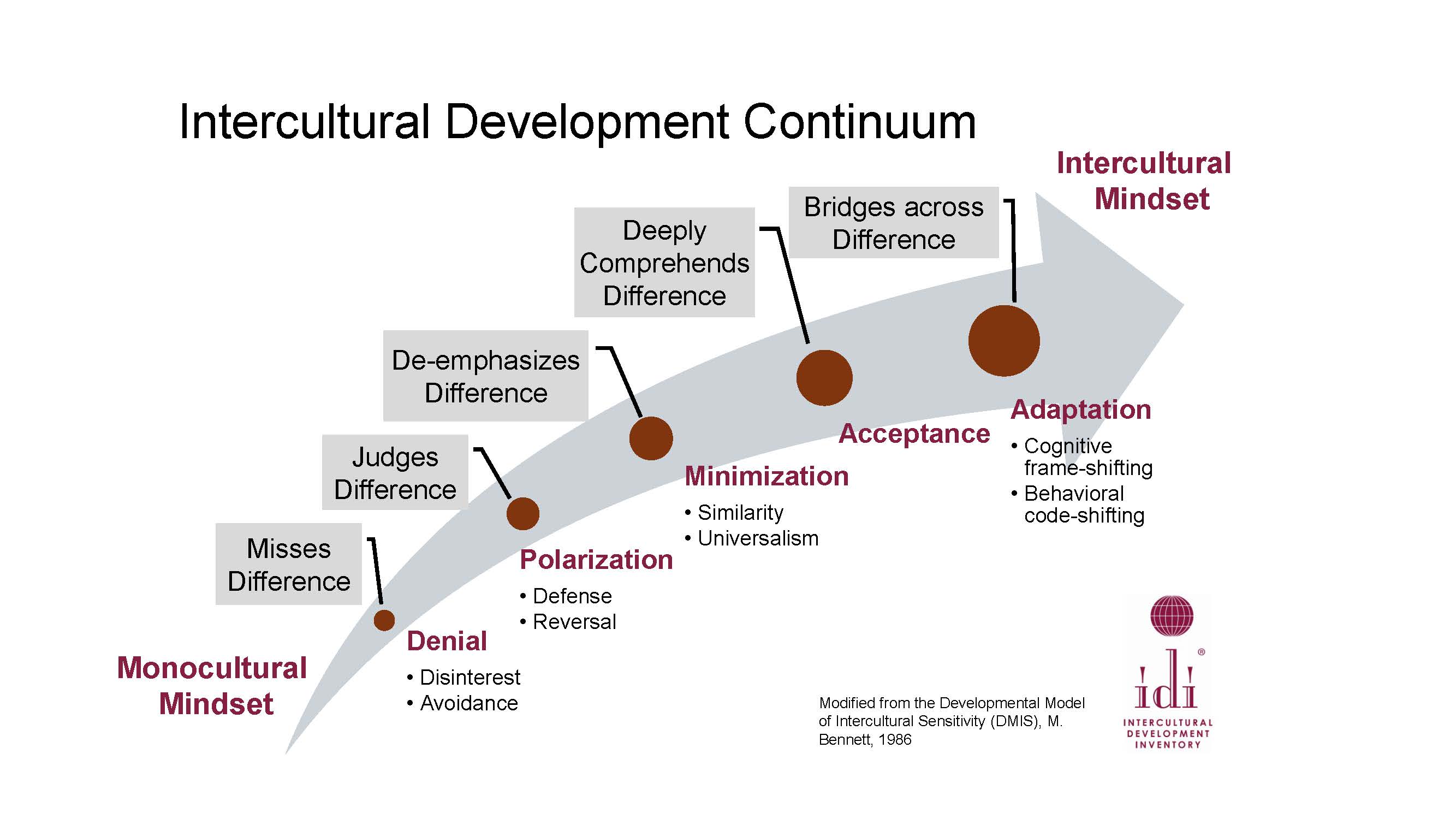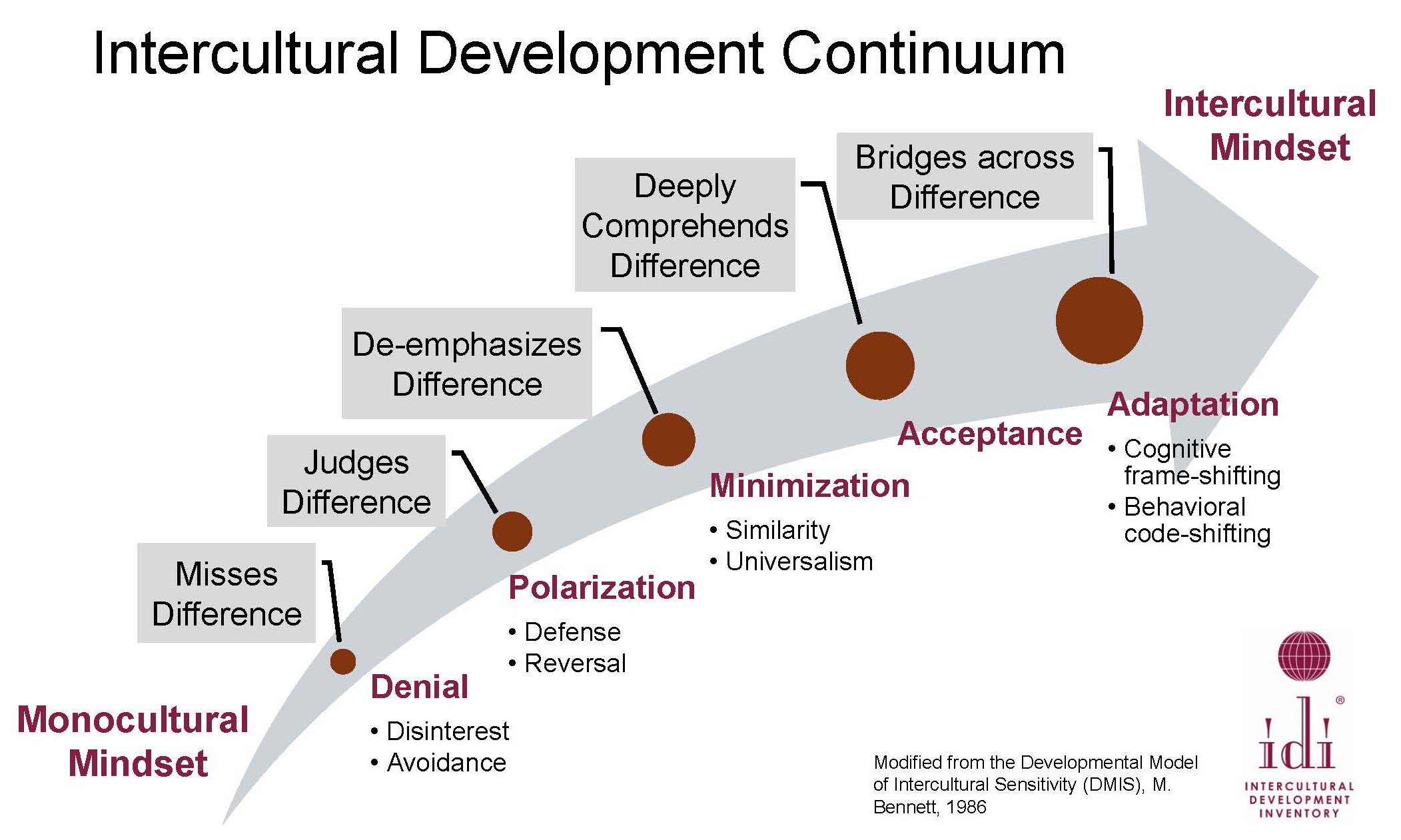The Cranwell Family Foundation Ethos through the Lens of the Intercultural Development Continuum



Transforming Intent into Impact: A Reflection on the Locally Grounded, Globally Minded Ethos of the Cranwell Family Foundation through the Lens of the Intercultural Development Continuum
A reflection by David Clubb, Executive Director of the Cranwell Family Foundation (CFF), exploring how the Intercultural Development Continuum (IDC) serves as a strategic and developmental guide for the Cranwell Family Foundation's locally grounded, globally minded philanthropic work.
As a Licensed Qualified Administrator of the Intercultural Development Inventory (IDI) for over a decade, and having administered the IDI in many contexts in my role as a faculty member and senior administrator at a wide range of higher education institutions, I have long understood the power of the Intercultural Development Continuum (IDC) to guide individual and organizational growth in intercultural competence. In my role as Executive Director of the Cranwell Family Foundation (CFF), I have found that this framework does more than offer diagnostic value—it serves as a deeply applicable, strategic compass for how our family philanthropy operates, makes decisions, and measures impact.

CFF’s mission—to unlock opportunities and unleash potential within a locally grounded, globally minded framework—demands a sustained and intentional capacity to understand, navigate, and bridge across cultural differences. This is the very heart of what the IDC helps organizations develop: a progression from monocultural mindsets (denial, polarization, and minimization) toward intercultural mindsets (acceptance and adaptation), where complexity, nuance, and authenticity are prioritized in cross-cultural engagement.
The Foundation’s Ethos through the Lens of the IDC
At its core, CFF’s work is about deep relational investment—not transactional giving. Our philanthropic portfolio spans contexts as varied as rural Appalachia, refugee camps in Kenya, and pan-African leadership academies in South Africa. Each of these partnerships requires more than charitable intent; they require the mindset and practices of intercultural adaptation—cognitive frame-shifting and behavioral code-shifting—as we engage with partners on their terms, in their contexts, and with their values and visions in focus.
The values that guide CFF—Empowerment, Collaboration, and Transformation—map closely onto the advanced stages of the IDC. Empowerment and collaboration emerge from an acceptance mindset, which appreciates and values other cultural perspectives. Transformation, especially in the way CFF defines it (strategic, sustained, and relational), echoes the adaptation mindset, where philanthropic engagement becomes a mutually developmental process. Our support for refugee students, for example, does not end with a scholarship—it includes cultural mentorship, storytelling, and collaborative capacity building that both shapes and is shaped by the communities involved.
The Role of the IDC in CFF's Internal Culture
Internally, the IDC offers an invaluable tool to strengthen CFF’s governance, family engagement, and communications strategies. With family members representing multiple generations and perspectives, applying the IDI and the IDC framework can help us understand where we are developmentally, and how to build a shared intercultural foundation for our decision-making and giving. As we grow as a family foundation, helping family members move from minimization (well-intentioned but often universalizing) toward acceptance and adaptation is key to ensuring that our philanthropy remains not only impactful but also respectful, inclusive, and co-created.
Moreover, the IDC offers a vocabulary and structure that enables critical self-reflection on positionality, power, and privilege—especially important in a foundation setting. Our partners, particularly those from displaced, under-resourced, or historically marginalized communities, deserve more than generosity; they deserve a philanthropic partner who listens, learns, and evolves with humility.
Applying the Continuum Strategically
Just as the IDI provides individuals and organizations with a Developmental Orientation (DO) and strategies for growth, CFF can use this framework to assess and advance its own intercultural learning. Whether evaluating new partnerships, crafting family engagement opportunities, or participating in networks like the Network of Engaged International Donors (NEID) and the Virginia Funders Network (VFN), the IDC can be a guiding tool for alignment and intentionality.
For example:
- Our work with Elimisha Kakuma and refugee students requires adaptation not just from students, but from us as funders—reimagining timelines, storytelling, and impact metrics in culturally responsive ways.
- Our support for organizations like the African Leadership Academy in Johannesburg, South Africa, Virginia Tech's Center for Rural Education in Blacksburg, Virginia, USA, and the Community Foundation of the New River Valley in Southwest Virginia USA, demonstrates our effort to navigate between global frameworks and local rootedness—work that sits squarely in the realm of adaptation.
A Closing Reflection
The Cranwell Family Foundation is about the ripple, not the splash—and the Intercultural Development Continuum provides a model for understanding how ripples of understanding, respect, and adaptive action can grow from within a family to reach across borders.
In a world that too often rewards immediacy, certainty, and uniformity, the IDC reminds us that the most transformational change is developmental, contextual, and sustained. That is the kind of change we at CFF strive to support—and to embody.

